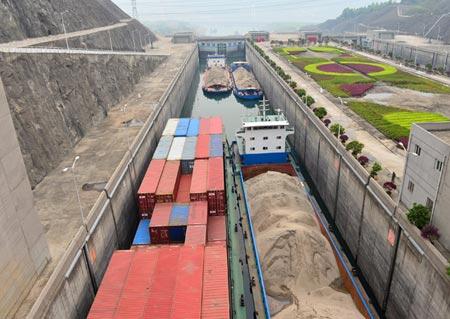China's fine tuning stimulus:
http://finance.yahoo.com/news/chinas-fi ... 10548.html
BEIJING (Reuters) - China's piecemeal approach to loosening monetary policy this year may be discreet, but the cumulative effect is proving just as powerful as an outright cut in bank reserves.
Wary of being criticised for not doing enough to wean the world's second-largest economy off its reliance on easy credit and heavy investment, authorities have ruled out major stimulus even as growth slowed to an 18-month low in the first quarter.
Instead, the People's Bank of China (PBOC) has relied on four low-key adjustments that have added a total of 550 billion yuan ($88 billion) into the banking system, a calculation based on a Reuters poll and information from sources shows.
That is equivalent to an economy-wide 50 basis point cut in the reserve requirement ratio (RRR), the level of reserves that banks must hold, a splashier move which would also have released 550 billion yuan in one stroke.
The four moves -- two reductions in the RRR for selected banks and two big loans to commercial banks -- are designed to direct cash to where its needed in the economy, and thwart speculative investment.
Characterising these changes as a "fine-tuning", the central bank has been adamant that overall monetary policy has not changed and remains prudent.
"We need to take a holistic view about monetary easing," said Wei Yao, an economist at Societe Generale in Hong Kong.
"The approach is called 'fine-tuning' because they did it bit by bit, but the accumulated impact is not small."
MORE THAN MEETS THE EYE
Falls in the exchange rate and short-term interest rates have further loosened monetary conditions.
The rolling monthly average for the benchmark short-term interest rate, the seven-day bond repurchase rate, has fallen 110 points since April, when the stimulus steps began, to 3.7 percent. And the yuan has fallen 2.5 percent this year.
Investment bank JPMorgan compiles a monetary conditions indicator that tracks the impact of changes in China's credit growth, excess reserves, real exchange rate and one-year interest rates.
Liquidity has become more ample, said Zhu Haibin, an economist at the bank, with the indicator suggesting monetary conditions eased by about 20 percent in April from March.
PUMP-PRIMING?
The government has also made a number of fiscal policy announcements, including faster spending of budget funds, tax cuts for some industries, and infrastructure projects, but their immediate impact is harder to quantify.
On April 2, the government began its stimulus by saying that it would speed up construction of rail lines and build 18 percent more railway tracks this year compared to 2013.
In May, authorities sent out an urgent instruction to local governments to ramp up spending and finalise 2014 budget allocations by the end of June or risk losing the funding.
The threat looks to be working. Government spending in May leapt 25 percent from a year earlier, with infrastructure investment jumping 16 percent.
Money spent on unspecified public works such as parks, the third-biggest expenditure item at 451 billion yuan in the first five months of the year, bounded up by 22 percent.
But complicating matters is a sharp rise in outstanding fiscal deposits -- or unspent government income -- this year, up 19 percent at the end of April compared to the same time last year. This raises doubt over just how much fiscal pump-priming is really going on, said Xu Gao, an economist at Essence Securities.
For Stephen Green, an economist at Standard Chartered Bank, the changes in monetary conditions are enough to convince him policy is being eased.
"We started the year with seven-day repo rates at 5 percent and now it's nearly at 3 percent. That's fairly clearly loosening," he said.
